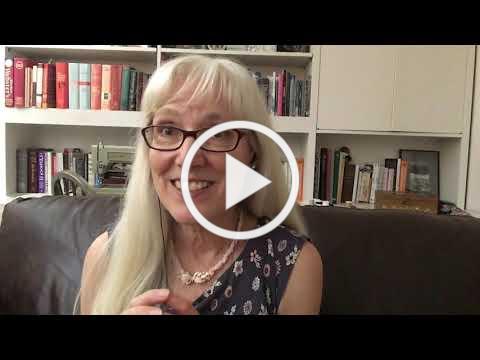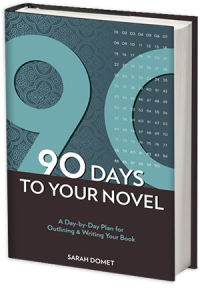Meet MWW20 faculty member Carol Saller
Carol Saller is a longtime contributing editor to The Chicago Manual of Style and writes for Fiction+ at the CMOS blog. She has also worked as an acquiring editor in children’s book publishing (Cricket Books). Her own books include The Subversive Copy Editor and several books for children, most recently the MG/YA novel Eddie’s War.
Praise for The Subversive Copy Editor …
“This is the book Oprah would write if her vocation were saving writers from embarrassment, rather than saving the whole world. To which I say, finally. I’ve got dozens of books concerned with the nuts and bolts of copy-editing, but this is the only one that teaches the fine art of chilling out.” — Jennifer Balderama, New York Times
- From Yourself to the Shelf: How a Book Gets Published – Knowing in advance what happens in copy-editing and proofreading helps writers understand their responsibilities, manage expectations, and work well with editors. This introduction to the publishing process from submission to printed (or digital) product will prepare you to work capably alongside the pros in delivering your work to readers.
- Acts of Submission: Working with Editors – Each year writers and editors submit thousands of questions to The Chicago Manual of Style, and for more than 20 years, editor Carol Saller read them all. To her, the number of questions beginning “My editor insists . . .” began to present a theme: that in editorial battles, the reader is the one who loses. Her book The Subversive Copy Editor is all about win-win strategies for editors and writers. This session presents advice from the book Publishers Weekly called “practical, relentlessly supportive and full of ed-head laughs.”
Jama Kehoe Bigger, MWW Executive Director, caught up with Carol recently and interviewed her for this Q&A.
MWW: What is The Chicago Manual of Style? What is the biggest source of confusion for writers about style manuals?
CS: The Chicago Manual of Style is a gigantic reference book filled with grammar and style advice for writers, everything from hyphenation and capitalization to writing footnotes and creating an index. It has chapters on permissions, tables, mathematics, languages other than English — you name it. It’s the style guide used most by US trade book publishers. It’s been around for generations and is respected all over the world.
The biggest source of confusion about style manuals is that they disagree, and that’s OK! Style manuals are created to serve different kinds of audiences or different kinds of publishing. Most newspapers use Associated Press (AP) style, for instance, which is different from Chicago style. So, for example, Chicago writes “lions, tigers, and bears” with a comma and AP writes it without, “lions, tigers and bears.” They’re both “correct.”
Styles are simply choices an editor makes in order to keep things consistent within a document, and following a manual keeps the editor’s choices consistent and saves the editor the trouble of making a million decisions.
MWW: Why did you write The Subversive Copy Editor? And why “subversive” in the title?
CS: Well, you caught me out. I don’t really have much potential as a subversive. But so many copy editors — especially inexperienced ones — take their style guides as sacred texts, I began to feel subversive in counseling them to be more flexible and break rules when it helps the reader. And as a colleague pointed out, The Subversive Copy Editor is a much more fun title than The Sensible Copy Editor.
MWW: How did you become an editor? Do you have any pet peeves as an editor?
CS: I sort of stumbled into editing by chance — it’s a long and boring tale. But I feel lucky to have found work that’s suited me so well.
Although I’m officially against peeving, which I believe stems from arrogance and leads to grammar-shaming and bullying, I can’t deny that there are some expressions that give me hives even though they’re already almost universally accepted. Here’s one: the use of “All X are not” to mean “Not all X are.” To me, it’s just nonsense! I could go on and on about this – if anyone’s curious, they can read my essay “All Lawyers Are Not Liars: True or False?”
MWW: You have read thousands of questions submitted to The Chicago Manual of Style. What are your favorite editing tips for writers?
CS: The best writers are readers. Read the kind of thing you want to write — read lots of it — to get an intuitive feel for how to write it. You can’t learn that kind of thing in a class.
Be humble when someone edits your prose. Some of the rules you learned in school about grammar and punctuation are out of date or were actually never right. Editors call these old bogus rules superstitions or zombie rules. You won’t find them in any authoritative grammar or style book. True facts: It’s fine to end a sentence with a preposition. It’s fine to have a sentence fragment. It’s fine to start a sentence with “And” or “But.” It’s fine to use the passive voice.
People tend to think whatever English they learned in school is gospel and unchanging. They don’t think that about physics or biology or history, of course — only English.
MWW: You are also a published author of fiction. Tell us about your other books.
CS: Years ago I published a string of books for young children — fiction, biography, history, a tall tale in verse — and then after a long hiatus I wrote Eddie’s War, which is YA historical fiction. Although the characters and events are made up, I based the farm-life details on my father’s family farm, which I grew up visiting, and on details I found in Dad’s childhood diaries, which he wrote when he was 12-18. Recently I finished two middle-grade/YA manuscripts (not sure how that happened — I started them years apart), and now I’m beginning the long-dreaded search for an agent. Wish me luck! If I don’t find one, I’ll have to retire from advising on how to write a query letter.
Join Carol and the MWW Community to help you move forward with your stories!



